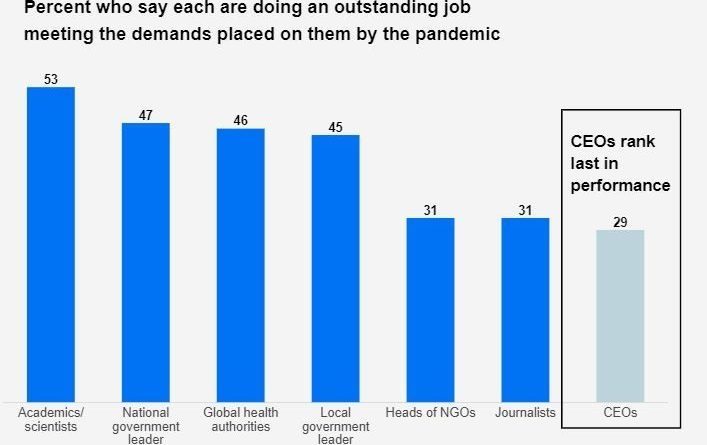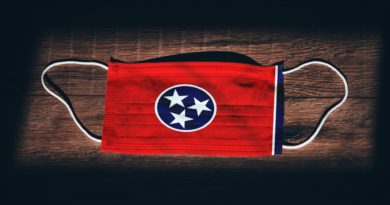The Great Reset after COVID-19 must put people first
• COVID-19 has exposed many underlying structural and institutional inequalities.
• Social movements are pushing for action on putting people first.
• Governments, business and the philanthropic sector must lead in creating a fairer world.
Much has been written in recent months around the challenges and responses to the pandemic of COVID-19. The debate originated with the relative preparedness of our healthcare and crisis systems to deal with unexpected disasters, but quickly morphed into a discussion of the underlying structural and institutional inequities that have been revealed. These conditions – poverty, marginalization and social exclusion – are not themselves products of the coronavirus, but magnify its impact.
This highlights an aspect of our current market system, where those that are marginalized face the highest risk precisely due to the nature and consequences of their exclusion. Farm workers, factory workers, migrant workers and platform workers toil with minimal or no protections, including access to healthcare. The Brookings Institution has explored the differential impacts of the pandemic on class divides in America, noting the wide gaps by income class in both the risk being posed by infection and levels of response. The World Bank has also released a thorough study on south Asia, noting the impact of the pandemic will hit hard on low-income people, especially informal workers in the hospitality, retail trade and transport sectors who have limited or no access to healthcare or social safety nets. Even further, the study reveals that a protracted crisis may threaten food security, particularly for the most vulnerable.
This is the core of the challenge, and moreover the opportunity, that the COVID-19 crisis presents. Ventilators, masks and other personal protective equipment are urgently needed, but alongside these efforts, deep structural reforms predicated on putting “people and the planet” at centre stage and supported by social movements are the necessary building blocks for transformation.
For governments, this translates into the full spectrum of interventions, from macroeconomic policy and bailouts, to public procurement criteria and processes. Each area where governments can set, condition, incentivize or buy in the market must be examined, and reforms must be promoted that build environmental and labour standards at their core. At the same time, social protection schemes must be built and supported to address economic and social risks exacerbated by the crisis. Work is underway with organisations like GIZ in Bangladesh, building worker advocacy for employment injury insurance as factories reopen with minimum protections in place. The need for more such efforts is glaringly apparent in countries where reliance on export markets has increased risks of poverty and inequality due to their disruption.

The reputation of business has suffered as a result of the coronavirus pandemic
Image: Edelman
Businesses are also beginning to understand that the focus on short-term profit maximization is no longer tenable. The recent Edelman Trust Barometer notes that only 38% of people believe that business is doing well or very well at putting people before profits. Businesses must therefore work to address and be accountable to the broad range of impacts that their operations have across stakeholder groups and the environment. Doing so must be a condition of doing business, not simply a competitive factor between business. This may soon become reality with European Commissioner for Justice, Didier Reynders, announcing in April 2020 that he will introduce legislation on mandatory human rights and environmental due diligence for companies as part of the Commission’s 2021 work plan and the European Green Deal.
Philanthropy too has a unique opportunity to contribute to this effort. We must remember that policy, without people, has no power. Therefore, philanthropic resources should support communities, workers and social movements more than ever to drive demand for reforms and ensure their implementation. Donor collaboratives, including Funders Organized for Rights in the Global Economy (FORGE), bringing together the Ford Foundation, Open Society Foundations, Laudes Foundation and others, are moving in this direction and collaborating to address short-term needs and build long-term solutions towards a rights-based economy.
These efforts and more are showing early potential in building an inclusive, just economy. The World Economic Forum has recently launched “The Great Reset” – an initiative to build a more fair, sustainable and resilient future that addresses the underlying structural and institutional inequities that have been revealed. As this initiative scales and the global community responds to the pandemic and economic consequences it has wrought, we must continue to seize the opportunity to transform our systems. Prioritizing “people and the planet” and supporting communities, workers and social movements can ensure we do just this.
Responding to the COVID-19 pandemic requires global cooperation among governments, international organizations and the business community, which is at the centre of the World Economic Forum’s mission as the International Organization for Public-Private Cooperation.
Since its launch on 11 March, the Forum’s COVID Action Platform has brought together 1,667 stakeholders from 1,106 businesses and organizations to mitigate the risk and impact of the unprecedented global health emergency that is COVID-19.
The platform is created with the support of the World Health Organization and is open to all businesses and industry groups, as well as other stakeholders, aiming to integrate and inform joint action.
As an organization, the Forum has a track record of supporting efforts to contain epidemics. In 2017, at our Annual Meeting, the Coalition for Epidemic Preparedness Innovations (CEPI) was launched – bringing together experts from government, business, health, academia and civil society to accelerate the development of vaccines. CEPI is currently supporting the race to develop a vaccine against this strand of the coronavirus.
The Indian author Arundhati Roy writes: “Historically, pandemics have forced humans to break with the past and imagine their world anew. This one is no different. It is a portal, a gateway between one world and the next. We can choose to walk through it, dragging the carcasses of our prejudice and hatred, our avarice, our data banks and dead ideas, our dead rivers and smoky skies behind us. Or we can walk through lightly, with little luggage, ready to imagine another world. And ready to fight for it.” Our fight against this global pandemic must also be, as Roy suggests, a fight for another world.
License and Republishing
World Economic Forum articles may be republished in accordance with our Terms of Use.




